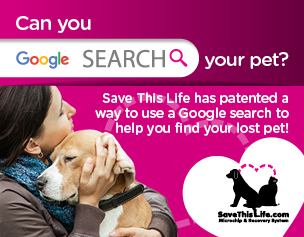Veterinarians: Heartworm Prevention Tips for Clients

An animal with heartworm disease is at risk of serious health complications. Clients need to understand how an animal becomes infected in order to better recognize the importance of using heartworm preventives for their pet.
Life Cycle of Heartworm Disease
The transmission of heartworm disease begins with a primary host and continues along the following rotation:
- Heartworm infected animal – primary host
- When an animal is infected with adult heartworms, the parasite produces offspring called microfilaria
- Microfilaria live in the animal’s circulatory system, remaining there for several years
- Before the microfilaria can become infective, they must go into a secondary host
- Mosquito – secondary host
- When the mosquito bites an infected animal, it draws blood containing microfilaria
- Over the next 10 to 17 days, the microfilaria will live within the mosquito to develop and mature into the infective larval stage that continues the cycle
- Uninfected animal bitten by an infected mosquito
- The heartworm larvae enters its new host through the bite wound
- The larvae live inside the host for the next 6 months, developing and maturing into adult heartworms.
Risk of Heartworm Infection
If an animal is bitten by a mosquito, it doesn’t always mean that it will end up diagnosed with heartworm disease. However, an unprotected animal will continually be at increased risk of infection. When talking with clients that are hesitant to put their pet on a heartworm preventive regimen, it may be helpful for them to know the following:
- Animals with heartworm disease have been identified in every one of the United States
- Geographic regions play a large part in the spread of heartworm disease
- Warmer climates may not reach the lower temperatures required to kill off mosquitos, and higher numbers of mosquitos directly relate to increased cases of infection
- Areas that are prone to storms and heavy winds can spread infected mosquitos to new locations that may have had a lower incidence of heartworm disease
- In an area where a natural disaster takes place, for example, Hurricane Katrina, homes are destroyed and the environment is rendered uninhabitable, and both humans and animals are often displaced
- When a now-homeless animal is relocated for adoption or strays from its home, if the animal has heartworm and is bitten by an uninfected mosquito, it helps to further the spread of disease
- Pets that are left untreated are at increased risk of infection if they travel with their people to areas with a higher incidence of animals infected with heartworm disease
- While there are methods to treat dogs diagnosed with heartworm, the severity of the infection and the health of the dog can make attaining a positive outcome difficult
- There is no medication available to treat heartworm disease in cats.
- Animals most often diagnosed with heartworm include:
- Dogs
- Cats
- Ferrets
- Coyotes
- Foxes
- Muskrats
- Raccoons
- Wolves.
Heartworm Prevention
Protecting a pet from heartworm disease requires the use of heartworm preventives that work against the larvae stages of the heartworm parasite. For example:
- Microfilaria transmitted through an infected mosquito bite
- Any larval stages developing inside the animal.
Heartworm medications are only available for use by or on the order of a licensed veterinarian, and are most commonly available in the following forms:
- Once-a-month chewable
- Once-a-month spot-on topical
- Twice-a-year injection.
Clients need to know that protecting their pet requires adhering to a strict calendar schedule.
- When administering the preventives, a late or missed dose will allow larvae to develop to their final adult stage
- It only takes 51 days for the larval stage to develop into adults, and there are no preventive medications available to treat the adult stage of heartworm
- The choice to protect an animal against heartworm is safer, more convenient, and also less expensive than having to treat an animal with adult-stage heartworm disease.
While unprotected animals that spend all of their lives outside run a higher risk of infection, even inside pets can be at risk. When it only takes one bite from an infected mosquito to get the disease, advise preventives are the key to keeping a pet safe!
Your Covetrus representative can provide further client information regarding heartworm disease, contact us at: 855.724.3461.



Working Here
Our team members are encouraged to be the best they can be... at Covetrus we believe we impact one another.
Learn MoreNews & Events
FDA Cautions Pet Owners Not to Feed Texas Tripe Inc. Raw Pet Food Due to Salmonella, Listeria Monocytogenes
The U.S. Food and Drug Administration is cautioning pet owners not to feed their pets any of the Texas Tripe brand raw frozen pet food listed below because several samples of Texas Tripe raw pet food have tested positive for Salmonella and/or L. mono.
Careers
Are you looking for a place to let your talents shine? At Covetrus, we help our practitioner customers better serve their patients and take pride in providing the best customer experience possible. Search our open positions to see our available opportunities.
Newsletter
Stay current with what’s going on with Covetrus, subscribe to receive our newsletter and email communications. Subscribers will receive the latest information in practice management, sales and marketing, animal health, and more.



-3-(1).png?sfvrsn=2d806d73_0)
